
views
Securing Your Home

Consider getting a house sitter. If you have a friend or relative who is willing to stay at your place while you're away, this can decrease the chances that someone will break into your house or obtain documents they could use to steal your identity. Having a house sitter makes it appear as though your home is occupied, so to an outsider it wouldn't seem that you were gone. If you decide to have someone stay at your home while you're gone, make sure it's someone you trust. You should think not only of that person but also his or her friends. If you don't get a house sitter, do what you can to make it look like you're still at home. Set your lights on a timer or leave one or two lights on at all times. You also can buy devices online or at home improvement stores that mimic the light that would come from a TV if viewed from the outside. Have a neighbor pick up any pizza or delivery fliers that are left on your door so they don't pile up and advertise your absence.
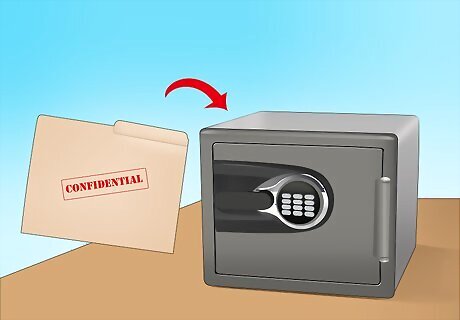
Lock away valuable documents. There's no reason to have legal or financial documents easily available while you're gone, so make sure anything with sensitive information on it is secure before you leave. If you don't already have one, you may want to invest in a fire safe before you go on your trip. Use it to store any legal or financial documents that have information such as account numbers or your Social Security number. Shred and dispose of any documents you don't need to keep, such as old utility bills and bank or credit card notifications, that may include sensitive information.
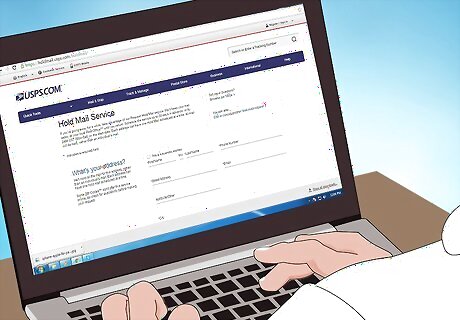
Make provisions for your mail. Especially if you're going to be gone for a week or longer, you can arrange for the postal service to hold your mail while you're away so it doesn't sit in your mailbox. You can schedule the period of time you want the postal service to hold your mail up to 30 days in advance of your departure. Once the hold is activated, your mail will be kept at the post office until you return. You can submit a hold-mail request online at https://holdmail.usps.com/holdmail/.
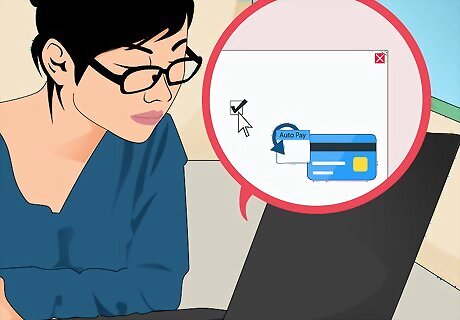
Schedule automatic payments. Arranging automatic payments through your bank ensures you don't have to make payments or access your accounts while you're traveling. Take a few minutes to stop paper statements from your credit cards to reduce the chances that an identity thief could get ahold of your account information while you're away. If you prefer paper statements, you can simply restart them when you get back.
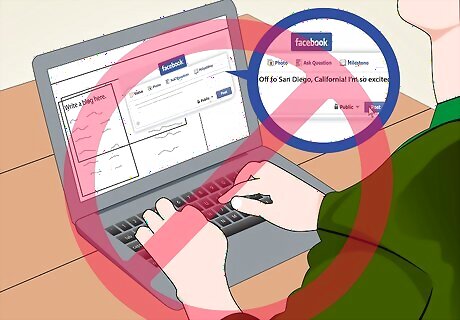
Refrain from posting on social media. Posting pictures or "checking in" at locations on your trip sends a signal to would-be thieves that you're away from home. Identity thieves often troll social media sites looking for clues that people are traveling. They could target your home for a break-in, particularly if you're far away and likely to be gone for awhile. Take all the pictures you want, then post them all at once when you've returned from your trip. This also gives you the opportunity to edit and choose the best shots to represent your trip and share with your friends.
Protecting Electronic Information
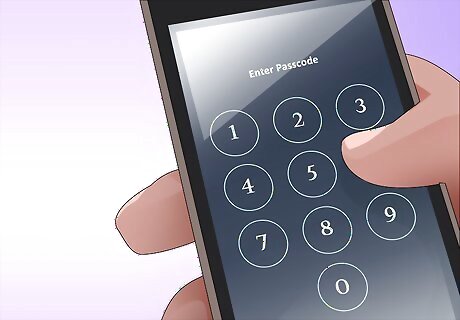
Protect all your devices with passwords. Keep any electronic devices you take with you secure by setting a log-in password that is difficult to guess. Turn off any devices when you're not using them, rather than letting them go into sleep mode. Don't leave them connected to a network unless you're actually using the internet. Particularly if you're going to a country you know will have questionable security, consider backing up all the data kept on your device before you leave and wiping your hard drive. Leave only the essentials you'll need during travel. You can restore everything when you get back. You also might want to consider taping over or disabling the integrated camera on your laptop. Delete your browser history and any saved passwords or other log-in information before you leave.
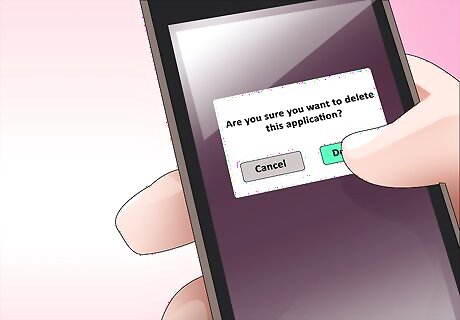
Delete sensitive apps. If you have apps on your smart phone that contain financial or identity information, simply remove the apps from your phone while you are traveling. Back up the information on your phone before you remove the apps and you can restore to the back-up file when you return. That way you can avoid having to reset all the information again. Make sure you're logged out of apps, especially social media apps, after you use them. If someone steals your phone and you're logged into multiple accounts, they have access to a virtual goldmine of sensitive information about you that they can use to steal your identity. You also may want to consider buying a cheap cell phone before you leave and using it rather than your personal phone on your trip. It won't be a big deal if you lose it, and the personal information contained on it will be minimal.

Be aware of your surroundings. If you're inputting passwords or accessing sensitive information in public, look around to be sure no one is looking over your shoulder. If you use the internet in a public place, try to sit with your back to a non-reflective surface such as a solid wall so nobody can get behind you or read your screen. Always make sure you log out of any site you visit before you close your browser, and avoid typing passwords when you're sitting close to strangers.

Avoid using Bluetooth or public Wi-Fi networks. Networks without password protection and adequate security invite hackers to steal your data. Hackers can infiltrate insecure Wi-Fi networks and steal your passwords and data, or install spyware on your computer. Avoid using anything but encrypted networks. If you need to get online and there are no encrypted networks available, try using your phone as a Wi-Fi hotspot. You also can download software before you leave that will enable you to create a virtual private network (VPN) that will encrypt your information and allow you to browse securely.
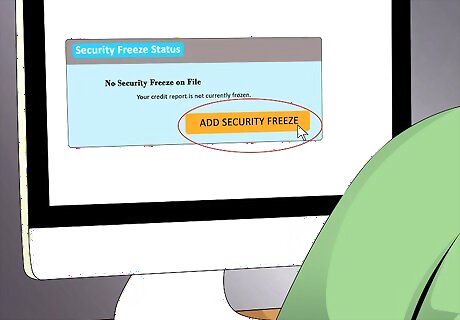
Consider getting a credit freeze. You can prevent any new accounts or lines of credit from being opened in your name while you're traveling. You will have to call each of the three credit bureaus to have a credit freeze put on your report, and each of them will charge you a fee – typically between $5 and $10. For this reason, a credit freeze may not be the best option if you are only going to be gone a few weeks. You might also consider having a travel alert put on your credit cards. Call your credit card companies and let them know when and where you're traveling to find out what options are available to keep your card secure while you're gone.
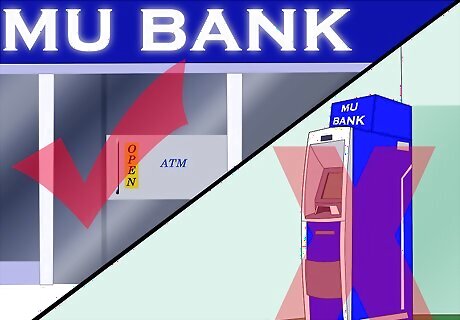
Use only bank ATMs. Identity thieves are less likely to tamper with ATMs located inside banks or secured, well-lit facilities. Identity thieves have been known to attach devices called skimmers to the part of the ATM that reads your card. These skimmers capture your data when you insert your card into the machine. ATMs most likely to be targeted are unattended machines in public locations, particularly in entertainment districts and other places where people frequently need quick cash. If you can't get to a bank, scope out the ATM's location before you use it. Avoid unattended ATMs with no visible security.
Packing Your Bags
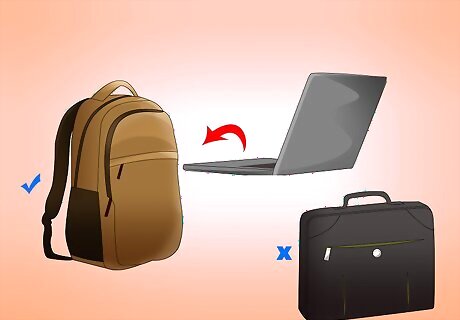
Consider using a non-traditional bag for electronics. Especially if you're taking your laptop on your trip, avoid advertising it to would-be thieves. Thieves can easily recognize a laptop case, for example. Your machine and the data on it will be safer if you put it in a sleeve and pack it in a duffle bag or a backpack.
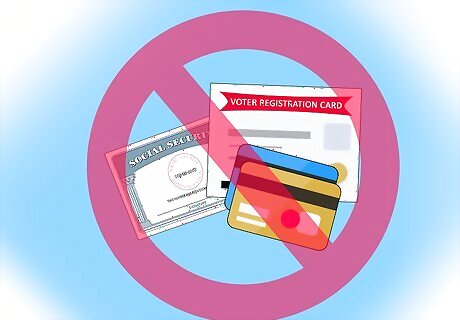
Avoid carrying credit cards you don't need. Designate one or two cards for your travel expenses and leave the rest at home. Along with your excess credit cards, get rid of any documents or information that you're not going to need while you're traveling. For example, you probably don't need your voter registration card – and under no circumstances should you ever carry your Social Security card in your wallet.

Make a list of account numbers and information. Include the bank or credit card company's toll-free number for reporting theft or fraud in the event your wallet or card is stolen. Keep this list on you at all times while you're getting to your destination, then lock it in the hotel's safe when you're out and about. Provided you can find a secure network, you may still want to check your accounts for suspicious activity every once in awhile – particularly if you're on a long trip and you haven't taken other precautions such as placing travel alerts on your accounts. You also should make copies of your identification documents before you leave. Take one copy with you and leave the other with a trusted friend or relative so you have the information you need to have them replaced in the event your wallet is lost or stolen.
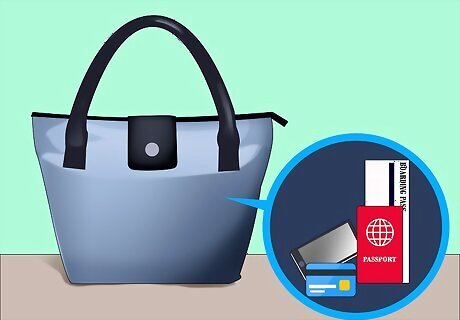
Keep personal documents in your carry-on luggage. Bags that you check can become lost or sit unattended for stretches of time, so keep anything with your personal information on you at all times. If you're asked to gate-check your carry-on for shorter flights in smaller planes, remove valuable or sensitive items and electronics before you do so. Keep your carry-on with you rather than leaving it unattended anywhere in the airport.

















Comments
0 comment